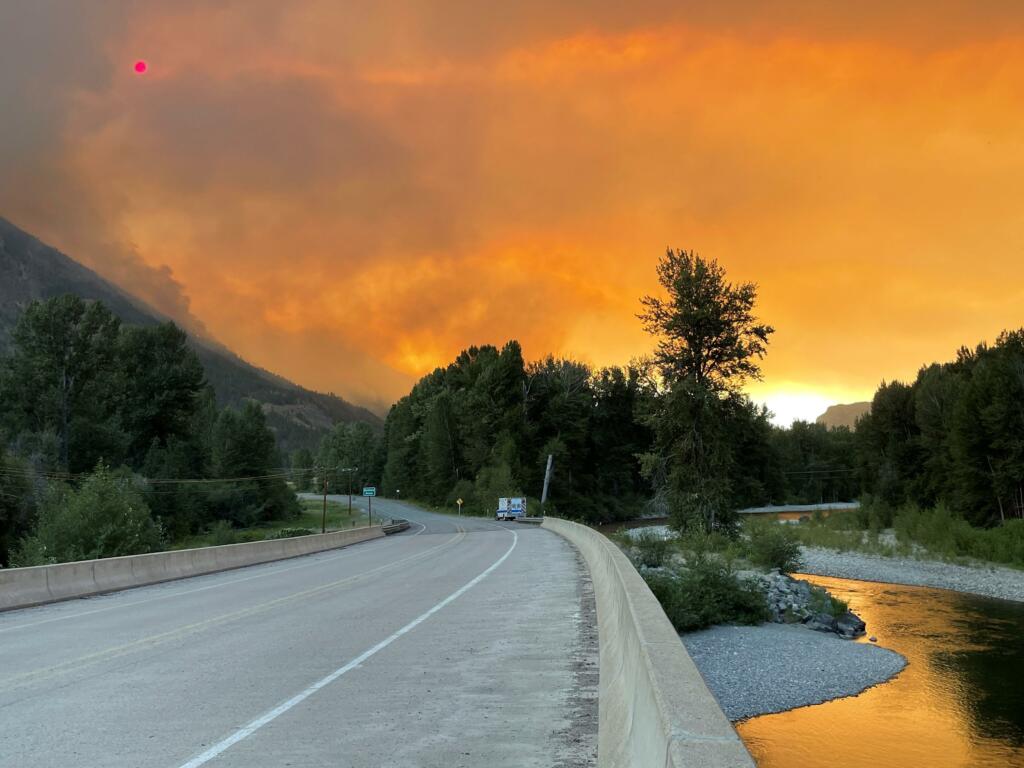WINTHROP — The north-central Washington town of Winthrop temporarily had the worst air quality in the country Thursday as wildfires in the Methow Valley area continued to burn and prompt evacuations.
The National Weather Service in Spokane said on Twitter that Winthrop’s air quality was listed as hazardous on the Air Quality Index’s real-time map and for a short time held the top spot for worst air quality in the nation.
Two large wildfires in hilly, forested areas near Winthrop and Mazama in the Okanogan-Wenatchee National Forest have also prompted evacuation notices, including new ones as of Thursday, The Bellingham Herald reported.
The Cub Creek 2 fire north of Winthrop has grown to almost 55 square miles (142 square kilometers). It was 5% contained on Thursday.
West of Mazama, the Cedar Creek fire has burned 29 square miles (75 square kilometers) and was 11% contained Thursday. Strong west winds caused the blaze to actively burn through the night Wednesday, triggering additional evacuations in the Wolf Creek area, officials said.
Part of State Route 20, the North Cascade Highway, remains closed west of Winthrop because of those fires.
The Red Apple fire near Wenatchee remained about 19 square miles (49 square kilometers) on Thursday and was 94% contained. It’s cause is still under investigation.
In the southeast corner of the state, the Lick Creek fire, also known as Dry Gulch fire, grew to nearly 115 square miles (287 square kilometers) as of Thursday with containment at 50%.
A new blaze as of Wednesday afternoon on the Spokane Indian Reservation in a forested area is growing and has prompted mandatory evacuations for about 20 residents, officials said Thursday.
The Department of Natural Resources will temporarily close all recreation and public access to DNR-managed lands in eastern Washington starting Friday because of extreme fire danger.
Extremely dry conditions and recent heat waves tied to climate change have made wildfires harder to fight. Climate change has made the West much warmer and drier in the past 30 years and will continue to make weather more extreme and wildfires more frequent and destructive.



